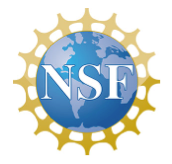
NSF Funding Opportunity: I-Corps Sites Program Proposals Due July 1
The National Science Foundation has developed a suite of funding opportunities, the Innovation Corps Programs (I-Corps), to help transition academic research outcomes into the marketplace.
One of these programs, the NSF Innovation Corps Sites Program (I-Corps Sites), expands our nation’s innovation ecosystem through fostering translation of academic research into the marketplace, catalyzing collaboration between academia and industry, and training students to understand innovation and entrepreneurship.
I-Corps Sites are funded for up to $100,000 per year for up to three years. The due date for responding to the I-Corps Sites funding opportunity is July 1st, 2013.







